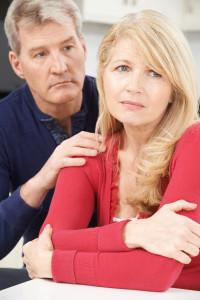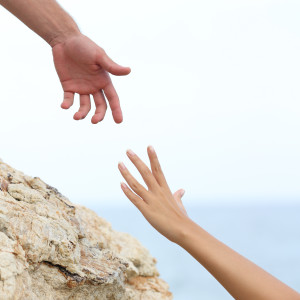Contributor: W. Travis Stewart, LPC, NCC writer for Addiction Hope
 Yesterday a friend of mine had to interrupt our conversation in order to run to the mailbox and get the mail before her kids saw it. What prompted this urgent mission of preventative parenting?
Yesterday a friend of mine had to interrupt our conversation in order to run to the mailbox and get the mail before her kids saw it. What prompted this urgent mission of preventative parenting?
The Christmas Toys-R-Us catalog. My friend said, “If I don’t get that before the kids see it they will suddenly feel a need for things which they didn’t even know existed before they opened the magazine.”
Most adults living in developed and western countries can relate to this. We walk into a store to pick up toilet paper and suddenly find ourselves wandering down an aisle on the opposite side of the store. This does not constitute a life crisis but it certainly points to the emotional pull of shopping.
For 5-6% of adults this pull to buy something develops into a compulsive and destructive need to shop, particularly during the holiday season.
Dr. April Benson, is a psychologist who specializes in the treatment of compulsive shopping and is author of To Buy or Not to Buy: Why We Overshop and How to Stop says,
“For the millions of us who have trouble limiting out spending, this time of year can be especially difficult. Seems like everyone is going shopping: on lunch breaks, after work, over the weekend. It can be a lot of fun if done in a measured and mindful way, but it can also lead to a whopping post-holiday hangover.” [1]
Compulsive Shopping
 Compulsive shopping (also called compulsive buying disorder) has a lifetime prevalence of 5.8% in the US general population and is characterized by “excessive shopping cognitions and buying behavior that leads to distress or impairment” according to Donald Black, a professor of social sciences at the University of Virginia.
Compulsive shopping (also called compulsive buying disorder) has a lifetime prevalence of 5.8% in the US general population and is characterized by “excessive shopping cognitions and buying behavior that leads to distress or impairment” according to Donald Black, a professor of social sciences at the University of Virginia.
He says that research shows that “CBD is associated with significant psychiatric comorbidity, particularly mood and anxiety disorders, substance use disorders, eating disorders, and other disorders of impulse control.” [2]
A shopping addiction is part of what are called process addictions. In process addictions, individuals become addicted to the changes in mood and brain states which are created by a behavior rather than a substance.
Process addictions include, but are not limited to, sex, food, internet, gambling and shopping. When the behaviors are used there is a release of chemicals in the brain which produce pleasure, calm, and relief. The urges become stronger when the person encounters stress, sadness, anger or other uncomfortable emotions and life circumstances.
Stress and Anxiety
 The holidays can bring all types of emotional experiences, not just peace on earth and good will to men. Unfortunately the season also brings the stress and anxiety of preparing for events or having family in town as well as depression, loneliness and loss. Ruth Engs, a professor at Indiana University states,
The holidays can bring all types of emotional experiences, not just peace on earth and good will to men. Unfortunately the season also brings the stress and anxiety of preparing for events or having family in town as well as depression, loneliness and loss. Ruth Engs, a professor at Indiana University states,
“Compulsive shopping or spending can be a seasonal balm for the depression, anxiety and loneliness during the December holiday season. It also can occur when a person feels depressed, lonely and angry.” [3]
Despite the short-term positive experience of buying something at the store, the crash of regret will hit, maybe as soon as the individual walks away from the cashier. Dr. Benson concurs, “Holiday overshopping, like other overshopping, can be a self-defeating treadmill, an endless exercise in futility – because we’ve been manipulated into expecting that what we buy can fill our innermost voids, regulate our emotions, repair our moods, or provide us with a ‘perfect’ image.”
Many will keep the items they purchase but leave them unopened and stashed in a closet at home. My wife, Susan Stewart, a professional organizer, often works with clients who have hundreds of pairs of shoes or piles of clothes with the tags still attached.
 “People buy these things hoping they will feel better and honestly believing they will use them, only to feel depressed when they get home and find they don’t know what to do with all of the purchases.
“People buy these things hoping they will feel better and honestly believing they will use them, only to feel depressed when they get home and find they don’t know what to do with all of the purchases.
Then they have a hard time getting rid of the items and just pile them in the closet or an extra bedroom.” This is probably not what they had in mind when they went shopping but the compulsions are too strong.
Like most process additions, help is available, both in the form of self-help approaches as well as more intense treatment programs. Some of the practical tips offered by Dr. Engs include:
- Pay for purchases by cash, check, or debit card.
- Make a shopping list and only buy what is on the list.
- Destroy all credit cards except one to be used for emergency only.
- Avoid discount warehouses. Allocate only a certain amount of cash to be spent if you do visit one.
- “Window shop” only after stores have closed. If you do “look” during the day, leave your wallet at home.
- Avoid phoning in catalog orders and don’t watch TV shopping channels.
- If you’re traveling to visit friends or relatives, have your gifts wrapped and call the project finished; people tend to make more extraneous purchases when they shop outside their own communities.
For those wanting more comprehensive and professional support you can find help through online support, therapy and even texting apps. Dr. Benson offers a wide range of these approaches at her site http://www.shopaholicnomore.com. A good place to begin is taking the free assessment which you can find here: www.shopaholicnomore.com/free-assessment-signup/.
The holiday season is meant to be a time when we celebrate hope, freedom and peace rather than compulsion and discouragement. If shopping is stealing your hope, don’t suffer alone. Explore the resources above or do an internet search for professionals in your area.
Community Discussion – Share your thoughts here!
Have you or your loved one struggled with shopping addiction? What tools have you learned to allow you to take control and maintain recovery?
References:
[1]: Personal email conversation, 11/2/15
[2]: http://www.ncbi.nlm.nih.gov/pmc/articles/PMC1805733/
[3]: http://www.indiana.edu/~engs/hints/shop.html
 About the author: Travis Stewart earned a Master of Arts in Counseling (2001) and a Master of Arts in Theological Studies (2003), both from Covenant Seminary in St. Louis, MO. Travis is a Licensed Professional Counselor in the State of Missouri and a writer for Eating Disorder Hope and Addiction Hope.
About the author: Travis Stewart earned a Master of Arts in Counseling (2001) and a Master of Arts in Theological Studies (2003), both from Covenant Seminary in St. Louis, MO. Travis is a Licensed Professional Counselor in the State of Missouri and a writer for Eating Disorder Hope and Addiction Hope.
The opinions and views of our guest contributors are shared to provide a broad perspective of addictions. These are not necessarily the views of Addiction Hope, but an effort to offer discussion of various issues by different concerned individuals.
We at Addiction Hope understand that addictions result from a combination of environmental and genetic factors. If you or a loved one are suffering from an addiction, please know that there is hope for you, and seek immediate professional help.
Last Updated & Reviewed By: Jacquelyn Ekern, MS, LPC on November 12, 2015
Published on AddictionHope.com
